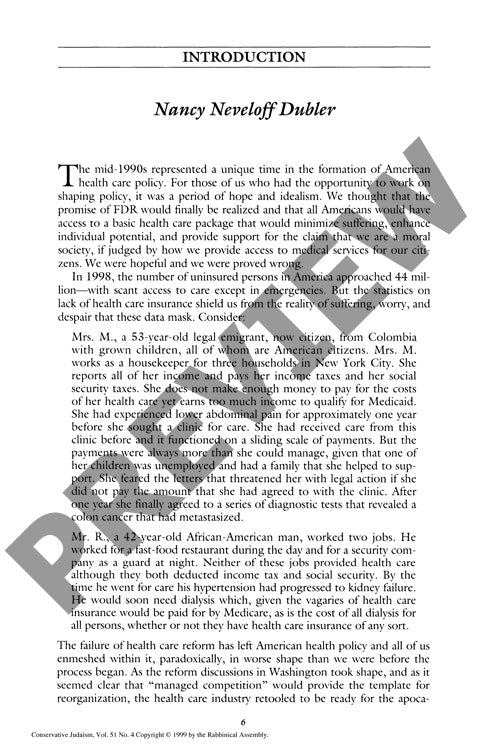Introduction
Couldn't load pickup availability
This introductory essay examines the failure of American health care reform in the mid-1990s and its consequences for uninsured populations. The author employs case study methodology, presenting specific examples of uninsured individuals who experienced delayed care and adverse health outcomes, including a Colombian immigrant with metastatic colon cancer and an African-American worker with hypertension progressing to kidney failure. The analysis reveals that the collapse of health care reform paradoxically strengthened managed care organizations while leaving approximately 44 million Americans without insurance coverage. The methodology encompasses a multidisciplinary approach, synthesizing perspectives from clergy, ethicists, and health policy experts to examine moral obligations in healthcare delivery. Key findings indicate that the failure to achieve universal coverage has created an untenable system where physicians face ethical conflicts between patient advocacy and resource allocation, while families bear increased caregiving burdens due to shortened hospital stays. The study concludes that meaningful health reform requires addressing two distinct levels of analysis: individual physician-patient relationships and broader societal justice concerns. The author argues that religious and moral frameworks, combined with recognition of finite resources, must inform future policy development, while acknowledging that sustainable solutions may require addressing broader socioeconomic determinants of health beyond mere access to medical services.

More Information
-
Physical Description
-
Publication Information
Published 1999
ISBN
-
Publication Credits
Nancy Dubler

